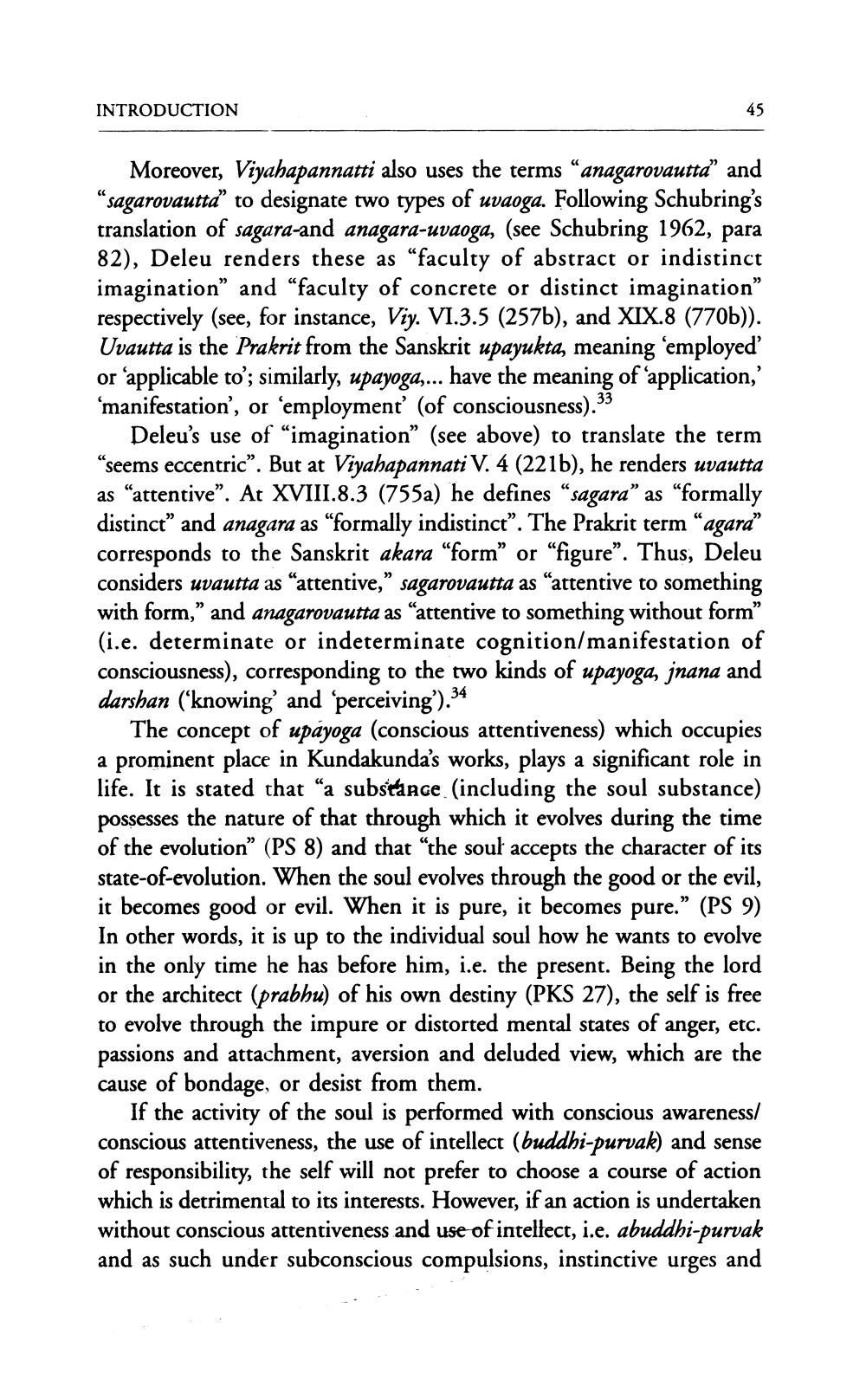________________
INTRODUCTION
Moreover, Viyahapannatti also uses the terms “anagarovautta" and "sagarovauttă” to designate two types of uvaoga. Following Schubring's translation of sagara-and anagara-uvaoga, (see Schubring 1962, para 82), Deleu renders these as “faculty of abstract or indistinct imagination” and “faculty of concrete or distinct imagination” respectively (see, for instance, Viy. VI.3.5 (257b), and XIX.8 (770b)). Uvautta is the Prakrit from the Sanskrit upayukta, meaning employed or ‘applicable to'; similarly, upayoga,... have the meaning of ‘application,' ‘manifestation', or ‘employment' (of consciousness). 33
Deleu's use of “imagination” (see above) to translate the term "seems eccentric”. But at Viyahapannati V. 4 (221b), he renders uvautta as “attentive”. At XVIII.8.3 (755a) he defines "sagara” as “formally distinct” and anagara as “formally indistinct”. The Prakrit term “agard” corresponds to the Sanskrit akara "form" or "figure”. Thus, Deleu considers uvautta as "attentive," sagarovautta as “attentive to something with form," and anagarovautta as "attentive to something without form” (i.e. determinate or indeterminate cognition/manifestation of consciousness), corresponding to the two kinds of upayoga, jnana and darshan ('knowing and 'perceiving'). 34
The concept of upayoga (conscious attentiveness) which occupies a prominent place in Kundakunda's works, plays a significant role in life. It is stated that “a substance (including the soul substance) possesses the nature of that through which it evolves during the time of the evolution" (PS 8) and that "the soul accepts the character of its state-of-evolution. When the soul evolves through the good or the evil, it becomes good or evil. When it is pure, it becomes pure.” (PS 9) In other words, it is up to the individual soul how he wants to evolve in the only time he has before him, i.e. the present. Being the lord or the architect (prabhu) of his own destiny (PKS 27), the self is free to evolve through the impure or distorted mental states of anger, etc. passions and attachment, aversion and deluded view, which are the cause of bondage, or desist from them.
If the activity of the soul is performed with conscious awareness/ conscious attentiveness, the use of intellect (buddhi-purvak) and sense of responsibility, the self will not prefer to choose a course of action which is detrimental to its interests. However, if an action is undertaken without conscious attentiveness and use of intellect, i.e. abuddhi-purvak and as such under subconscious compulsions, instinctive urges and




